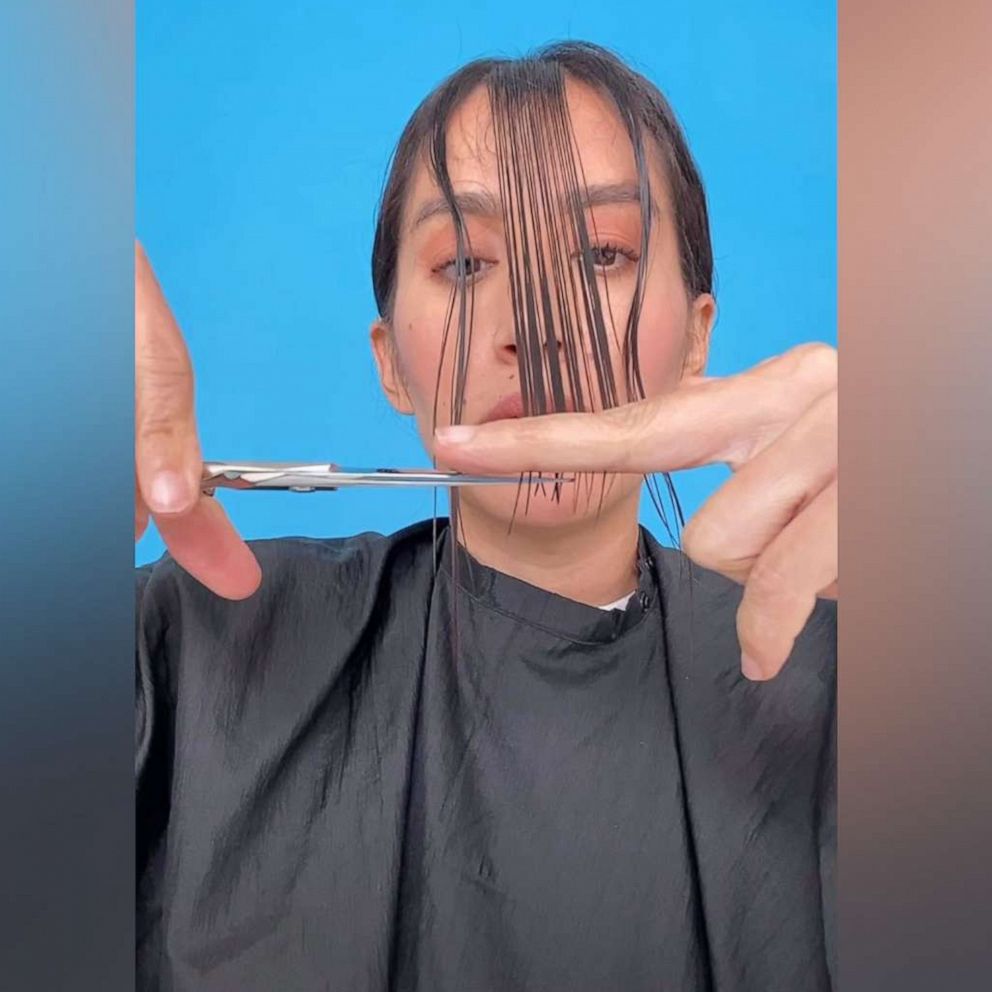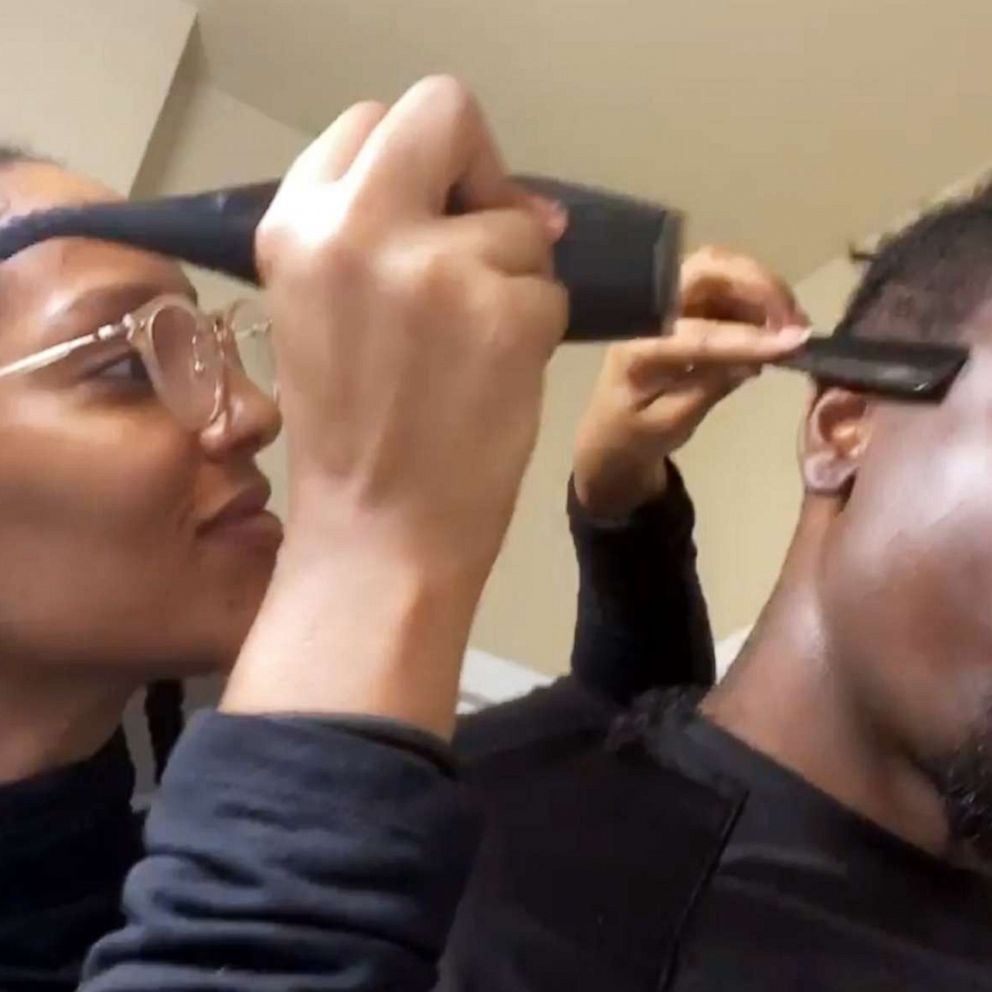Breaking out? Here's how to take care of your stressed skin at home
Experts weigh in on how to give your skin some extra TLC while home.
If you have been wondering how to give your skin some extra TLC while safely social distancing amid the coronavirus outbreak, you're not alone.
This month, the search for "skin at home" has tremendously spiked reaching peak popularity on Google. Interest surrounding the topic has also more than doubled since February, prior to the COVID-19 pandemic.
The privilege of physically consulting with a dermatologist or trying treatments at a spa is obsolete due to government shutdowns on non-essential businesses. This has left many people searching for answers on how to care for themselves while at home.
"During times of stress, our body responds by producing more cortisol," board-certified dermatologist Dr. Dendy Engelman tells "GMA." "This hormone overstimulates our sebaceous oil glands, meaning we produce more sebum. This sebum can build up in our pores, trap more bacteria and lead to breakouts."
While most people experience acne flares at some point during their lifetime, a global crisis such as the one we are experiencing now can make matters worse.
Could stress be showing up on your skin?
A 2017 clinical study focusing on the association between stress and acne found that participants with higher stress based on their Perceived Stress Scale (PSS) results, had higher acne severity when examined and graded using the global acne grading system.
With stress being the possible culprit of an impromptu acne breakout, experts have suggested practices such as meditation to help regulate the amount of stress you are experiencing.
"Meditation has been shown in peer-reviewed studies to have the ability to lower blood pressure, lower heart rate, lower the stress hormone cortisol and increase areas of brain connectivity, according to ABC News chief medical correspondent and a board-certified OB-GYN Dr. Jennifer Ashton.
Avoid anti-inflammatory foods
When caring for your skin at-home it's also important to pay attention to your diet as certain foods could be aggravating your skin.
"Consider foods that are naturally anti-inflammatory like salmon and avocado to help reduce the effects of stress on the skin," board-certified dermatologist Dr. Michelle Henry told "GMA." "Stay away from foods like dairy which may contribute to inflammation."
Engelman also advises foods with high glycemic index spike our blood sugar and trigger our hormones. "Like stress, this increase in hormones causes inflammation in our skin, clogs pores, and ultimately leads to more breakouts," she said.
Experts agree and suggest that healthy fats, antioxidant-rich foods, probiotics such as nuts, seeds, and yogurt can assist in keeping your skin free of breakouts.
Stop picking!
While watching Dr. Pimple Popper videos is oddly satisfying for some, it's a habit that dermatologists highly suggest should be avoided.
Engleman advises that it can take anywhere from 1-7 days to heal the skin of a popped pimple. "Popping pimples can actually spread the bacteria, push it deeper into the skin and make the pimple worse and take longer to heal," she says. Instead, she recommends trying a spot treatment with powerful acne clearing ingredients such as salicylic acid or benzoyl peroxide.
Try: Proactiv Emergency Blemish Relief which contains acne fighting prescription-grade, micro-crystal benzoyl peroxide or an over-the-counter option such as Differin gel that's infused with adapalene -- a topical retinoid used to treat mild acne.
Stick to a consistent skincare routine
"It is imperative to wash your face nightly regardless of makeup use or whether you have gone out," licensed esthetician and founder of Just Ageless Beauty + Body Lab Jeannel Astarita told "GMA."
Astarita suggests using a gentle chemical exfoliant such as Glo Skin Beauty’s Pro 5 to gently slough off dead skin that clogs pores and speed up the production of new skin cells. "Regular use of a retinoid that doesn't create excess irritation, and a daily hydrating moisturizer are essential as well," she says.
Don't forget about SPF!
Another important element is to continually incorporate SPF into your skincare routine. "If your home has windows, you are still exposed to UVA and Blue light from devices," said Henry. She recommends applying a sunscreen with broad-spectrum daily.
Telemedicine & virtual consultations
Many dermatologists have telemedicine services available in which you can consult and possibly get a diagnosis over the phone or online.
There also skin-focused companies that have been offering a variety of virtual skin consultations. German aesthetics doctor, Dr. Barbara Sturm, started a "Skin School" series on Zoom and YouTube Live which features digital at-home classes on skin health and how to take care of your skin. Class registration is available via Eventbrite.
There are also a variety of other skin experts offering online one-on-one consultations where you can ask direct questions and get customized recommendations.







